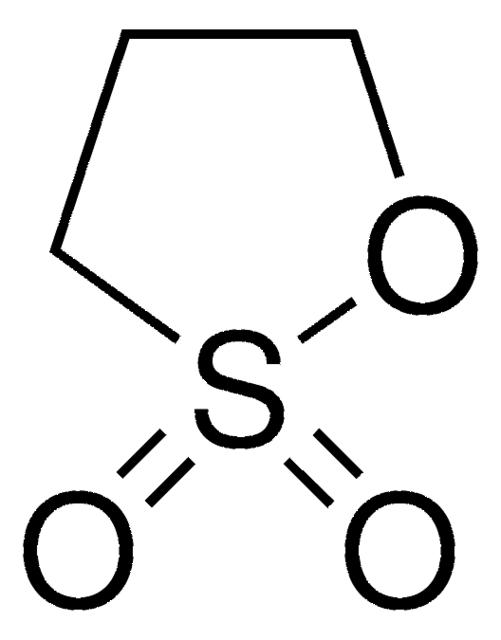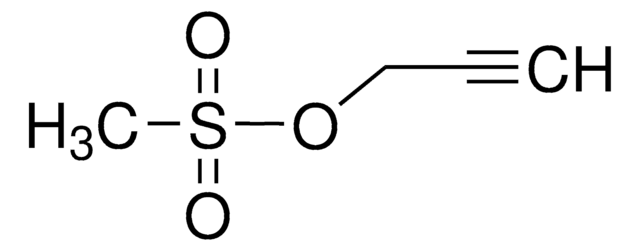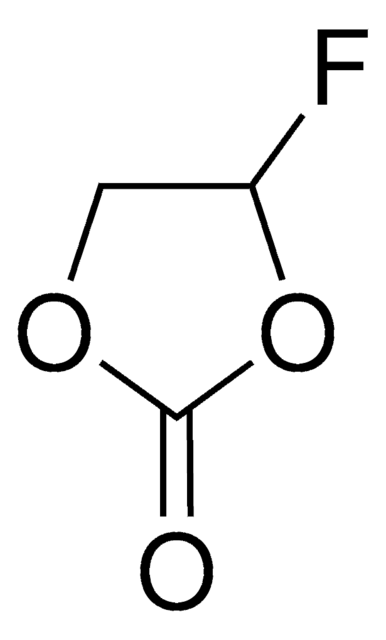900020
Adiponitrile
battery grade, >99%, acid <200 ppm, H2O <100 ppm
Synonym(s):
1,4-Dicyanobutane
About This Item
Recommended Products
grade
battery grade
Quality Level
vapor density
3.7 (vs air)
vapor pressure
0.01 mmHg ( 40 °C)
Assay
>99%
form
liquid
autoignition temp.
1022 °F
expl. lim.
4.99 %
impurities
≤100 ppm H2O
≤200 ppm acid
refractive index
n20/D 1.438 (lit.)
bp
295 °C (lit.)
mp
1-3 °C (lit.)
density
0.951 g/mL at 25 °C (lit.)
application(s)
battery manufacturing
SMILES string
N#CCCCCC#N
InChI
1S/C6H8N2/c7-5-3-1-2-4-6-8/h1-4H2
InChI key
BTGRAWJCKBQKAO-UHFFFAOYSA-N
Looking for similar products? Visit Product Comparison Guide
Related Categories
Application
Caution
Legal Information
related product
Signal Word
Danger
Hazard Statements
Precautionary Statements
Hazard Classifications
Acute Tox. 3 Oral - Acute Tox. 4 Inhalation
Storage Class Code
6.1C - Combustible acute toxic Cat.3 / toxic compounds or compounds which causing chronic effects
WGK
WGK 1
Regulatory Listings
Regulatory Listings are mainly provided for chemical products. Only limited information can be provided here for non-chemical products. No entry means none of the components are listed. It is the user’s obligation to ensure the safe and legal use of the product.
PDSCL
Deleterious substance
FSL
Group 4: Flammable liquids
Type 3 petroleums
Hazardous rank III
Water insoluble liquid
ISHL Indicated Name
Substances Subject to be Indicated Names
ISHL Notified Names
Substances Subject to be Notified Names
JAN Code
900020-BULK:
900020-500G:
900020-VAR:
900020-25G:4548173964942
Choose from one of the most recent versions:
Already Own This Product?
Find documentation for the products that you have recently purchased in the Document Library.
Customers Also Viewed
Articles
Experts discuss challenges and production processes of nickel-rich layered oxide cathode materials in energy storage systems.
Due to the adverse impact of the continued use of fossil fuels on the earth’s environment and climate, researchers have been asked to develop new approaches for producing power using renewable sources like wind and solar energy
Ionic liquid electrolytes explored for rechargeable batteries' advancement; future IL development discussed.
Our team of scientists has experience in all areas of research including Life Science, Material Science, Chemical Synthesis, Chromatography, Analytical and many others.
Contact Technical Service

















